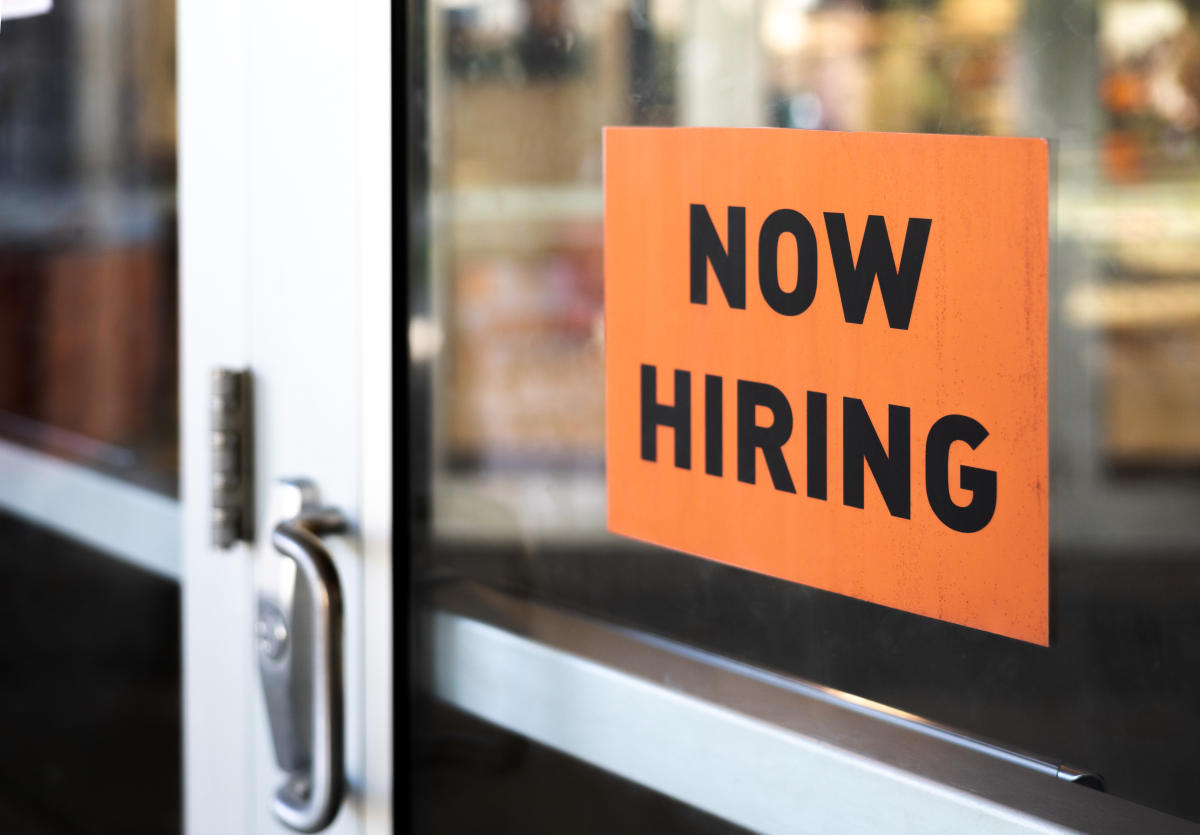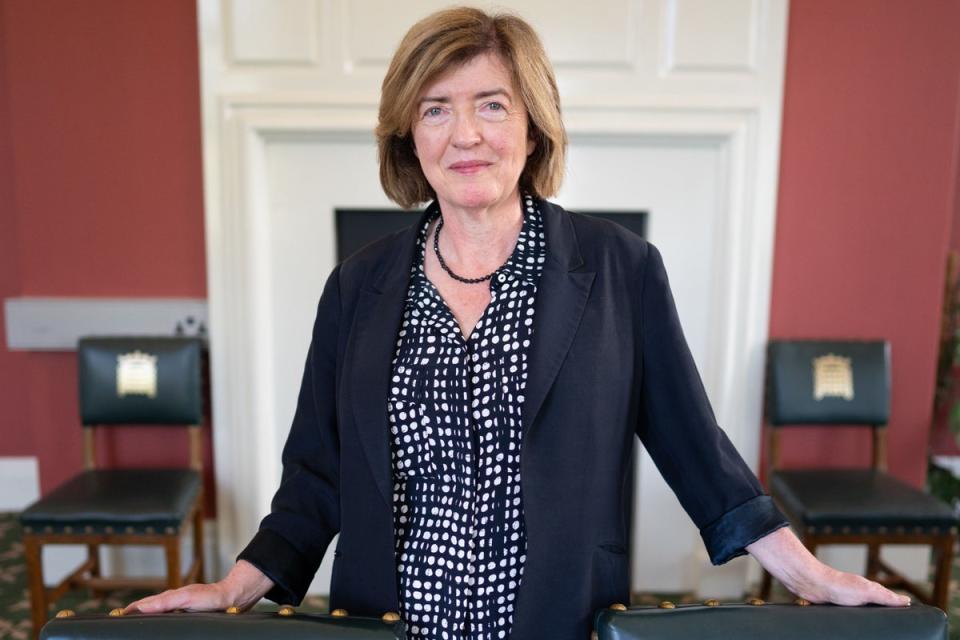It was a fortnight ago, on the opening weekday of the Labour Party conference in Liverpool, that Sir Keir Starmer settled down for lunch with the man he has just made his most senior adviser.
The choice of location – a table near the window of the Pullman hotel’s restaurant, in full view of passing delegates – indicated he wanted to be seen with Morgan McSweeney.
Just as conspicuous, this time by her absence, was the woman who until a dramatic No 10 shake-up on Sunday had the title Mr McSweeney now holds of chief of staff: Sue Gray.
Dogged by headlines about her leaked salary – greater than that of the Prime Minister – Ms Gray had stayed away from the conference. She may well never attend another.
For just before 1pm on Sunday, the news broke that Ms Gray, three months and one day into her time as Downing Street’s top aide, would be stepping away from the role.
Instead, she would take up a ministerial appointment as Sir Keir’s envoy for the “regions and nations”. The position is set to be part-time. A pay cut is inevitable – if she is paid at all.

For one onlooker, watching from a senior position inside government and frequently inside the buildings of Downing Street, the news marked a clear victory for Mr McSweeney.
“Team Morgan has obviously been chipping away at Sue for months,” the source told The Telegraph after the news broke of Mr McSweeney’s promotion and Ms Gray’s demotion.
“Everything bad that’s happened has been laid at her door and been done through the press, presumably with what has happened now in mind.
“And they have succeeded. They are now pretty unambiguously in charge.”
The truth of how the weekend’s developments played out and the forces that drove them are nuanced, as the subtle balances of power inside No 10 often are, and still murky.
The context was weeks of headlines about donations suggesting a lack of grip at the centre, mixed with the teething problems from a party entering power after 14 years out in the cold.
But at its centre are two figures who have held influential yet morphing roles in the orbit of Sir Keir, a leader himself still adjusting to the pressures and demands of being the UK’s leader.
Mr McSweeney, a quick-talking Irishman who honed his political instincts battling the BNP in Barking and Dagenham, east London, has been more centrally involved for longer.
As head of Labour Together, the centrist group which attempted to wrestle back control of the party from Jeremy Corbyn, Mr McSweeney was picked to lead Sir Keir’s Labour leadership campaign in 2020.
He survived at the centre as the Labour leader shook up his team and shadow cabinet after poor 2021 local election results and led the party’s successful general election campaign.
Ms Gray was a late joiner. A career civil servant with decades of experience, she led the investigation into lockdown-breaking parties which damned Boris Johnson’s premiership.
She then became a Tory hate figure after flipping from her past impartial officialdom to take up the role of Sir Keir’s chief of staff in opposition in September 2023.
Attention driven by vast public profile
The appointment created a new centre of power in Sir Keir’s team. She was focused on getting ready for government, Mr McSweeney on winning the election to get them there.
That meant in the six weeks running up to July 4, it was Mr McSweeney, with the New Labour veteran and MP Pat McFadden, calling the shots. The result: a historic victory.
But after election night, the power balance was inverted. It was Ms Gray, now chief of staff in Downing Street, with the greater influence in appointments and implementation of policy.
It was not long before negative briefings emerged. Where was this “100-day plan” Ms Gray was said to have been working on? Was she taking a greater role than past chiefs of staff?
The attention, allies and critics agree, was in part driven by her vast public profile.
Not since Dominic Cummings, Mr Johnson’s divisive chief adviser, has a No 10 aide been so well known.
All developments could be pinned on Ms Gray from the outside, correctly or otherwise.
But the potential list of noses put out of joint by Ms Gray was also long: Labour staff were brutally told they would not be taken from the opposition team into government despite years of hard work for the party; civil servants who had worked with Ms Gray for years who now effectively had her as a boss; new special advisers angered on their low pay bands.
The latter may have contributed to the most explosive leak: that Ms Gray was to be paid a salary of £170,000, more even than the Prime Minister himself.
The news dropped just before the Labour conference began, overshadowing what was meant to be a celebratory gathering.
The BBC, which broke the news, also made clear it had been told the information unexpectedly by someone inside the Government.
In other words: confirmation that splits at the heart of Sir Keir’s team were real.
Hence Ms Gray’s absence from the conference gathering. Best avoid generating more headlines by being trailed by news cameramen.
Allies of both Ms Gray and Mr McSweeney have always firmly rejected any suggestion that they do not get on or have been at loggerheads.
Point to one specific issue that the pair are said to have clashed on, Mr McSweeney’s allies would always counter. To date, there has not been one in the media.
They are from different generations: Mr McSweeney in his late 40s, Ms Gray in her late 60s.
They have different skill sets: Mr McSweeney with his finger in the pulse of the electorate, skilfully understanding how a Left-wing party regains office; Ms Gray a creature of Whitehall, with decades of experience about how power is wielded at the centre and to what effect.
Cabinet ministers always defended her positive impact inside Sir Keir’s set-up.
At times she was seen to have countered the sway of what Labour MPs have dubbed “the lads” around the leader, in reference in part to Mr McSweeney and his allies.
So what changed? What appears to be clear, after conversations with government insiders and those tapped in on movements from the outside on Sunday, is that Ms Gray did not want to give up the chief of staff role.
At the start of last week, she saw a firm ally and made clear she was “not going anywhere”.
Ms Gray has felt uncomfortable with the intensity of press attention, not just on herself but her son, Liam Conlon, the new Labour MP for Beckenham and Penge.
To avoid the paparazzi, she has been leaving home at 6am. “It has not been comfortable,” said an ally. “She absolutely detests the limelight. She hates it.”
But Ms Gray had always made clear she was not easily swayed by critics. “I’ve never let a bunch of bullies push me out,” she is said to have commented once.

Then something changed. At the end of the week – multiple well-placed sources believe it was on Friday – the conversation morphed to her leaving No 10.
No public indication was given between whether Sir Keir asked Ms Gray to move on or she offered. However, multiple well-placed sources have told The Telegraph it was the former.
The 48 hours leading up to the announcement were dominated by negotiations between Ms Gray and Sir Keir’s team.
The news came with cracks smoothed over in official quotes issued from the Prime Minister and his now former chief of staff.
Sir Keir said: “I want to thank Sue for all the support she has given me, both in opposition and government, and her work to prepare us for government and get us started on our programme of change.
“Sue has played a vital role in strengthening our relations with the regions and nations. I am delighted that she will continue to support that work.”
Ms Gray said: “I am pleased to have accepted a new role as the Prime Minister’s envoy for the regions and nations.”
She added: “It has been an honour to take on the role of chief of staff, and to play my part in the delivery of a Labour government.
“Throughout my career, my first interest has always been public service.
“However, in recent weeks it has become clear to me that intense commentary around my position risked becoming a distraction to the Government’s vital work of change.
“It is for that reason I have chosen to stand aside, and I look forward to continuing to support the Prime Minister in my new role.”
But the harsh reality of the demotion was clear in the specifics of her new brief.
She had been working out of No 10. Now she is attached to the Cabinet Office.
She had been working full time by Sir Keir’s side. This new role is expected to be part-time.
She had been on £170,000. It is understood she will now certainly be on less than that and certainly on less than Sir Keir.
The role may yet be unpaid – there has been no confirmation.
The new position – working on keeping the UK together and functioning smoothly, an issue close to heart – will have less raw power than the similar one she held a few years ago.
That role, the second permanent secretary of the Cabinet Office working on union matters with Michael Gove, had seen her eventually quit in search of more meaningful work.
And then there is the reality of who she now reports to. Ms Gray will formally be reporting into Mr McFadden, the man who co-ran the election campaign with Mr McSweeney and is now Chancellor of the Duchy of Lancaster.
One former Tory government adviser said: “She’s basically gone a rung down on the ladder than her old job [in the Cabinet Office], which is pretty extraordinary.”
Just a few days ago, Ms Gray was being tipped to play a central role in shaping the senior Civil Service after Simon Case announced his departure as Cabinet secretary, citing health reasons.
The pair’s working relationship, though, had been strained since years earlier when both were jockeying for the best roles in Whitehall.
The vacancy appeared to have strengthened Ms Gray’s hand.
She had initially encouraged Sharon White, the former John Lewis boss, to apply.
Sir Olly Robbins, the former Brexit negotiator, was seen as an early frontrunner with reports he had Ms Gray’s support.
Now she is out of the inner circle herself.
The appointment of Sir Keir’s new principal private secretary – Nin Pandit has won the role, confirmed in a rush of secondary appointments on Sunday – underscores that reality.
Ms Gray had been expected to shape that selection.
Also confirmed on Sunday was the elevation of one of Mr McSweeney’s close allies.
Vidhya Alakeson, who had been working in his No 10 political unit, will become the new deputy chief of staff. It was another sign of cemented power.
Back on that first Monday of the Labour conference, as Sir Keir lunched with Mr McSweeney in full view of delegates for an hour, it was the latter who did most of the talking.
Now it is indisputably clear which aide most has the ear of the Prime Minister.
EMEA Tribune is not involved in this news article, it is taken from our partners and or from the News Agencies. Copyright and Credit go to the News Agencies, email news@emeatribune.com Follow our WhatsApp verified Channel





